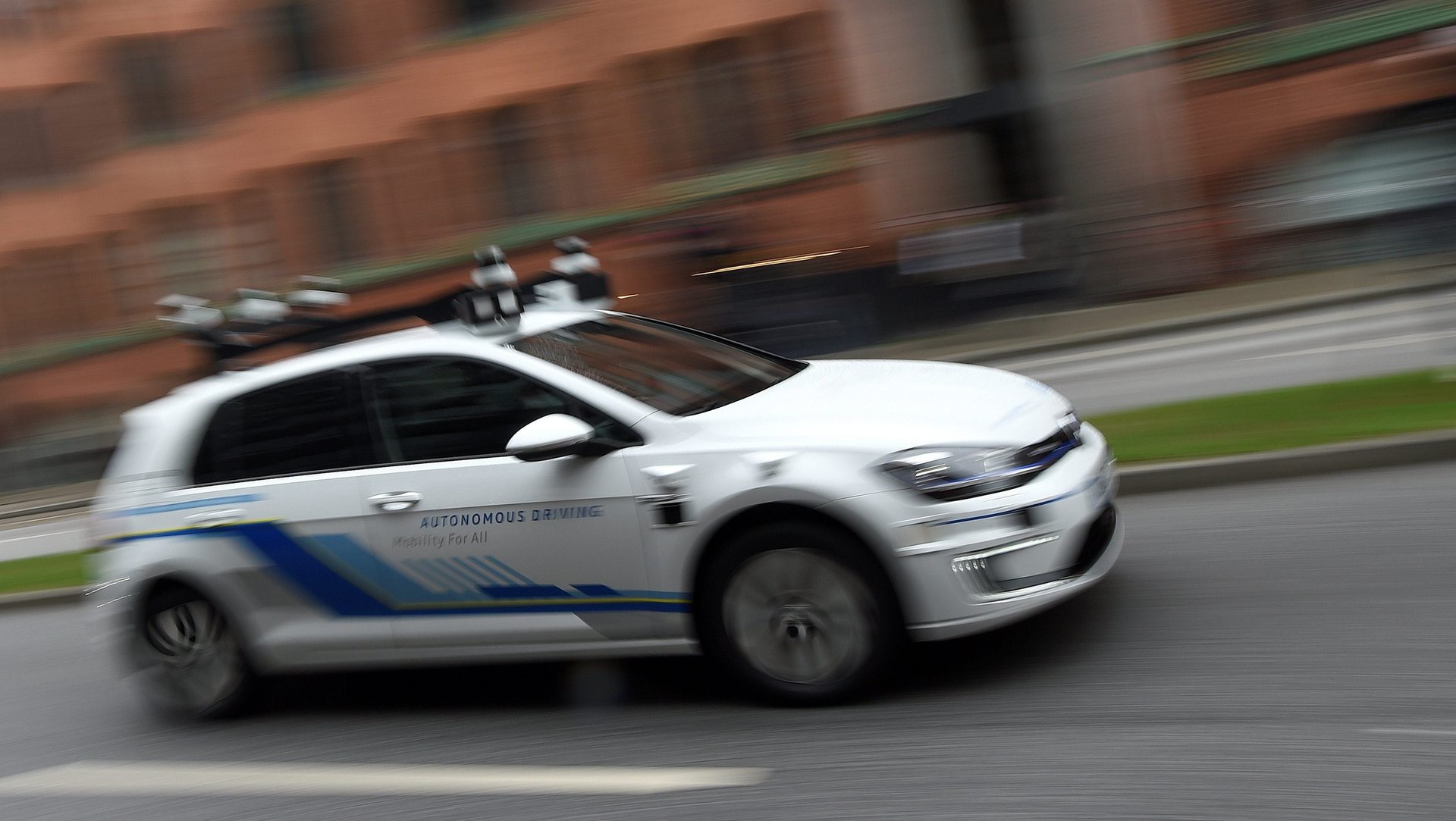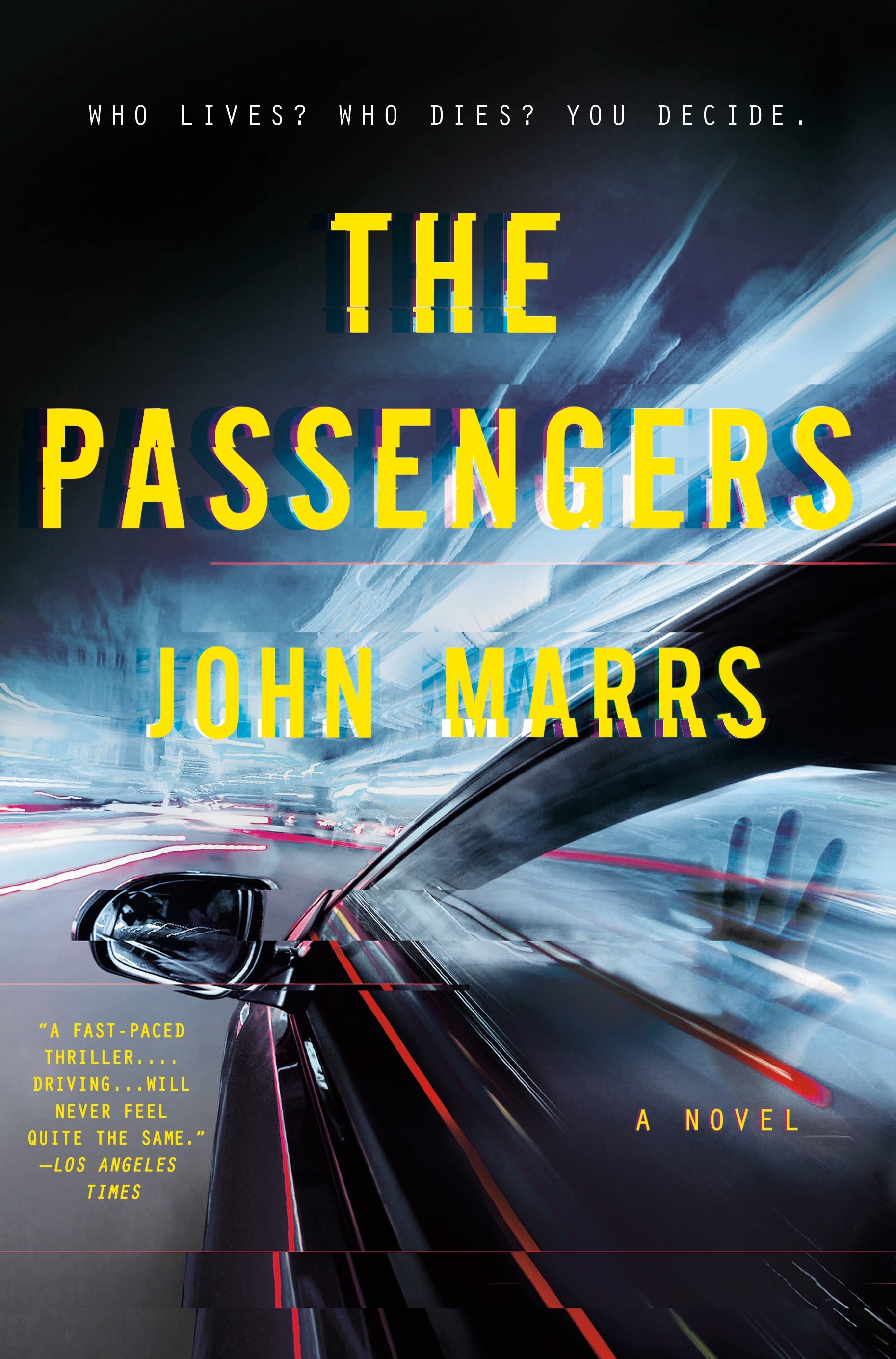A new thriller novel offers up twisted scenarios of the tech revolution gone wrong
Sometimes it feels like we live in a dystopia. Gigantic corporations know everything there is to know about us. They do their damndest to find out what we might want to buy at any given moment. Online personalities pretend to be our friends to sell us even more. Surveillance cameras are everywhere. Billionaires are investing in schemes to make themselves live forever. Rainforests are burning, while we’re trying to make better juicers.


Sometimes it feels like we live in a dystopia. Gigantic corporations know everything there is to know about us. They do their damndest to find out what we might want to buy at any given moment. Online personalities pretend to be our friends to sell us even more. Surveillance cameras are everywhere. Billionaires are investing in schemes to make themselves live forever. Rainforests are burning, while we’re trying to make better juicers.
The Passengers, a new novel from author John Marrs which was released Aug. 27 in the US, takes that dystopia a step further. It’s set in the UK, in the not-too-distant future, sometime post-Brexit. The big political issue in this new world is that the UK government is in the process of eliminating all human-controlled cars, replacing them with fully autonomous vehicles, which are meant to reduce accidents and traffic.
Alas, the novel is a thriller.
It won’t be a spoiler when I say the book’s shtick is what happens when the fully self-driving car you’re in suddenly clicks on the locks and tells you that in two hours you’re going to die, and there’s nothing you can do about it—it’s on the cover flap. The other part of the predicament is that this fate is being broadcast on social media to the entire world.

I have issues with this book. The characters are rather flat, even tough they are supposed to be multifaceted people with layers of secrets. The writing can be awfully stilted, women are treated in a bizarrely anthropological way (“Then once she washed and conditioned her hair, she had used her most expensive brand name cosmetics”), and a character who immigrated from India is portrayed like a person from a different universe who does not know how to use a phone, or understand the concept of calling the police (yes, her husband isolates her from the world, but come on).
But the book is a fast-paced read that’s often hard to put down, and offers an entertaining way of critiquing the world’s current obsession with technology and data harvesting. It’s like a puzzle where you match the subplots with the real-world corollaries, like a social media whiz who has all the data but little empathy who is hard not to see as a stand-in for Silicon Valley engineer-founders like Mark Zuckerberg. (As one character tells him: “You’re a statistician who doesn’t understand the value of human life because you live in a virtual reality surrounded by other avatars equally as devoid of empathy as you are.” Side note: There is a fair amount of telling, rather than showing in the book, and a massive amount of moralizing). Its dystopian developments intrigue through their familiarity. The world in The Passengers only slightly differs from ours, which is what makes the book scary, in a perversely fun kind of way.
Some spoilers below, but read ahead if you want to find out what awaits us if technology is given too much power.
The promise of self-driving cars is to make roads safer, more efficient, and environmentally friendly. But what happens when an autonomous vehicle gets hacked? The theoretical dangers are enormous, with bad actors potentially capable of kidnapping passengers or making cars collide. That’s an easy plot device, and in itself not a very interesting one. But at the center of the book is a different question. It turns out that in an event of an accident, where the car would have a choice whether to kill its passenger or the pedestrian, cyclist or other driver, it would choose whoever is least valuable to society based on their ID cards and wearable devices which store all their data (someone without a criminal record is more worthy than a convict, and a pregnant woman wins over an elderly person living on state assistance). The software, of course, did not come up with this eugenic ranking system on its own. The elites in power had devised it and defined the data which the cars would use to make their decisions, making for a neat illustration of humans injecting the AI systems they create with their own biases, which we see today on a different scale, whether it’s in the criminal justice system, or the insurance industry.
The vehicles in The Passengers are speeding toward a location where they are supposed to crash into each other and kill those inside. The audience—the entire social media world—is allowed to vote on who is to die in the final crash (they don’t, but more than a thousand unsuspecting other passengers do) , based on the titular passengers’ likability and life stories which are selectively fed to them by the main villain-but-not-villain, the Hacker, who is behind the murderous cars. This is a not-so-subtle commentary on reality TV and its penchant for escalating drama and extreme intrusiveness, but also cancel culture and social media mob justice, which takes everything out of context and judges based on sparse information. But it does the trick: in Marrs’ book, the uber-dystopian concept of The Hunger Games, where the audience helps decide who gets to die, becomes just a little bit more real.
The most outrageous hypothetical in the book is perhaps also the most titillating, and could probably make for a separate story worth exploring (update: the author has explored it himself in a novel called The One). Scientists discovered that every person in the world is matched by DNA with another one, a real soulmate, and by submitting your DNA results to a company modeled on Ancestry.com or 23andme, you can find out who they are. People are now able to easily find their true love, while others divorce and families fall apart when the couple discovers they were not a true match. But a data breach floods the system with fake matches, and eventually it becomes a crapshoot whether you find your scientific pairing or a dud. It’s a play on online dating and matching people based on algorithms, a warning against the the dangers in putting your DNA online, and giving too much power to tech companies, all in one subplot. One of the passengers finds out after marrying his wife that his DNA-matched love is someone else, so he marries her too, leading a double life for many years.
The Passengers plays on many of today’s anxieties, with its chief accusation being that our belief that data is king. But then again, its commentaries on the near future don’t sound too far off how parodic modern life truly feels (see: bedbugs; robot abuse; Fitbit as healthcare).